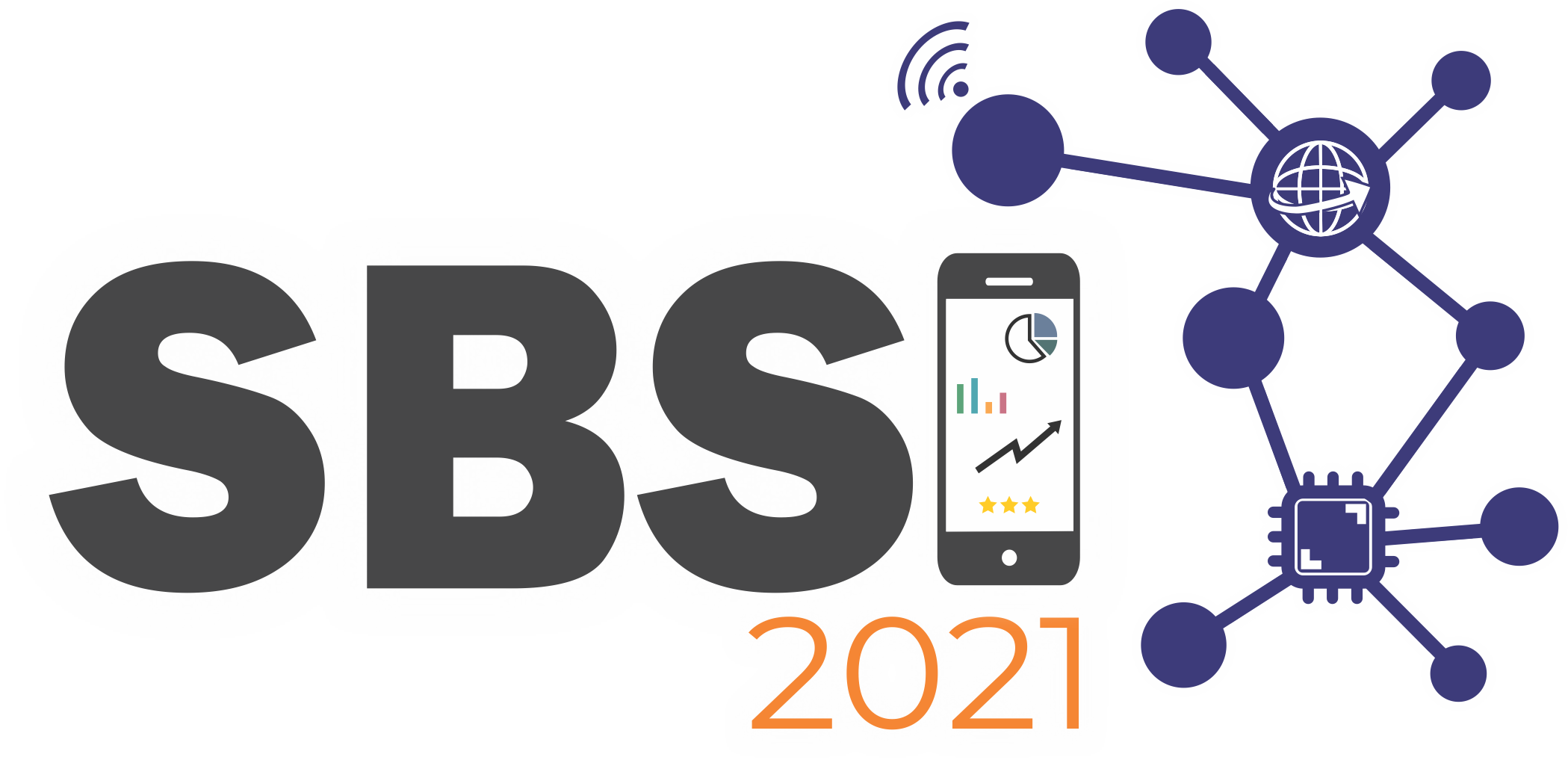Trilha Emergente: Human-AI Interaction in the Era of Digitalization
Chamada de Trabalhos

Description
The 2019 Coronavirus pandemic has changed the lives of communities and organizations. For a very long time, digital technologies usage was limited to more restrictive and specific tasks, e.g., following weather conditions or chatting with colleagues. As new usage has been explored, most of them unthoughtful in the period pre-pandemic, these technologies have become fundamental to daily activities, e.g., medical appointments, company meetings and shopping goods. This movement towards a more effective usage of information technologies comprises the so-called Digital Transformation. Once these technologies can be used to digitize processes, they also generate further opportunities to improve the performance and effectiveness of social or organizational decision-making. Artificial Intelligence and Machine Learning thus become essential to process and gain insights from the large volume of data (i.e., Big Data) (Brynjolfsson & McAfee, 2014; Müller et al., 2018). This is why algorithms and models are capable of learning from historical (integrated) data, establishing and defining behaviour patterns and then make projects of future conditions. A new dynamic emerges from this interaction and has the potential to create deeper modifications not only on how technologies adapt to people but also on the information flows and social structures of interactions. A recent work defines three types of the relationship of AI and humans (Rai et al., 2019): task substitution (i.e., AI is responsible for a task); task augmentation (i.e., humans are combined with AI to perform a task or vice versa); and task assemblage (i.e., humans and AI are integrated to perform a task). Even though these relationships are recognized in practice and literature, they still require further investigation and research to understand their characteristics and elements, as well as to establish the success and failure factors. Existing literature also still lack empirical studies on the topic, specifically, in countries of the Global South. In this context, this track proposal seeks to gather researchers and practitioners interested in addressing open questions on the relationship between AI and humans in the Era of Digitalization. The track session will create an environment for discussing empirical, theoretical and conceptual results on the topics of interest. Eventually, the track will also provide a room for motivating collaborations among the participants around the future and open challenges on the topic.
Topics of Interest:
- Descriptive models on the relationship between AI and humans;
- Responsible AI for digital transformation;
- Theories applied to AI for digital transformation;
- Methods, methodologies and processes applied to AI for digital transformation;
- Institutionalization of AI within organizations and communities;
- Humanized AI for digital transformation;
- Impacts of AI with organizations and society;
- Relationships of AI and humans for decision-making within organizations and society;
- Success and failure factors of AI within organizations and society;
- Relationships of AI and humans for addressing the Sustainable Development Goals of the United Nations;
- Empirical, conceptual and theoretical studies;
- Experiences from the digital government (e-Gov) and industry;
- Studies applied to Global South and Latin America;
- Secondary studies (e.g., literature review and mapping study) on the topic.
Submission format and publication:
- Full papers (8 pages): full and complete papers describing consistent and validated results on the topics of interest of this track;
- Short papers (4 pages): Insightful papers describing emerging ideas or ongoing works on the topics of interest of this track.
The submission must follow the SBC articles template available on the following link: SBC Template. We accept papers using English language. Submissions must be sent on SBC's JEMS platform (https://jems.sbc.org.br/home.cgi?c=3769)
Important Dates:
Deadline:Authors' notification: Apr 26, 2021
Camera-ready: May 10, 2021
Deadline for registration of at least one author per paper: May 10, 2021
SBSI 2021 dates: June 07-10, 2021
Chairs of the Emerging Track - Human-AI Interaction in the Era of Digitalization:
Dr. Flávio HoritaFederal University of ABC (UFABC), Brazil
flavio (at) horita (at) ufabc (dot) edu (dot) br
Dr. João Baptista
Warwick Business School (WBS), UK
Coordenador de Publicações do SBSI 2021:
Awdren FontãoUniversidade Federal do Mato Grosso do Sul (UFMS)
Coordenadores Gerais do SBSI 2021:
Rafael D. AraújoUniversidade Federal de Uberlândia (UFU)
rafael (dot) araujo (at) ufu (dot) br
Fabiano A. Dorça
Universidade Federal de Uberlândia (UFU)
fabianodor (at) ufu (dot) br

